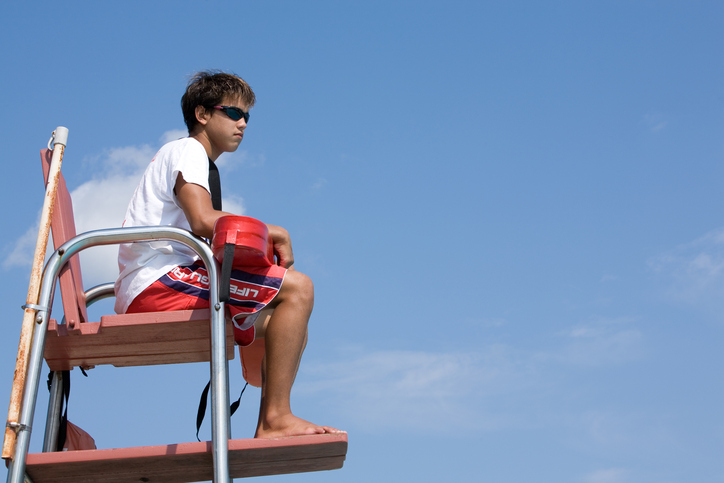Choosing the right lifeguard certification program near you is a crucial step toward gaining the skills and qualifications necessary to ensure safety in aquatic environments. With a variety of programs available, it’s essential to identify the one that aligns with your goals, schedule, and career aspirations. This guide provides a detailed overview of what to consider when selecting the perfect lifeguard certification course in your area.
Why Lifeguard Certification Is Important
Lifeguard certification is a mandatory requirement for working in pools, waterparks, beaches, and other aquatic facilities. It provides:
- Practical training in water rescues, CPR, first aid, and emergency response.
- Legal authorization to work as a certified lifeguard.
- A foundation for personal development and career growth in safety and emergency services.
Key Factors to Consider When Choosing a Lifeguard Certification Course
1. Accreditation and Recognition
Ensure the program is accredited by recognized organizations such as:
- American Lifeguard USA
Accreditation ensures that the training meets national standards and that your Lifeguard certification near me will be recognized by employers.
2. Location and Accessibility
Opt for a course near your home or workplace. Local programs are often more convenient and may have partnerships with nearby aquatic facilities for training.
3. Type of Certification Offered
Different certifications may cater to specific environments, such as:
- Lifeguarding for pools
- Open water lifeguarding for beaches and lakes
- Waterpark lifeguarding
Choose a course that aligns with your career goals or the environment where you intend to work.
4. Experienced Instructors
Instructors with extensive experience in lifeguarding and teaching provide better insights and training. Look for programs with certified and reputable trainers.
Components of a Good Lifeguard Certification Program
1. Comprehensive Curriculum
The course should cover all key aspects of lifeguarding, including:
- Water rescue techniques
- First aid and CPR training
- Surveillance and emergency management
- Use of rescue equipment
2. Hands-On Practice
Practical experience is vital in lifeguard training. Programs should include in-water training and simulations of real-life scenarios.
3. Certification Exam
Ensure the course includes a final assessment that evaluates both theoretical knowledge and practical skills. Passing this exam is essential for certification.
4. Recertification Options
Lifeguard certifications typically require renewal every two years. Choose a program that offers convenient recertification options to maintain your credentials.
Questions to Ask Before Enrolling
Before committing to a program, ask the following questions:
- Is the certification nationally recognized?
- What are the prerequisites for the course? (e.g., age, swimming ability)
- How long is the course, and what is the schedule?
- What is the total cost, including materials and exam fees?
- Does the program offer job placement assistance?
Benefits of Choosing a Local Certification Program
1. Convenience
Attending a program near you reduces travel time and expenses, allowing you to focus on your training.
2. Networking Opportunities
Local courses help you connect with instructors, peers, and potential employers in your community.
3. Familiarity with Local Facilities
Training in local pools or aquatic centers provides practical knowledge of the specific facilities you may work in after certification.
Top Lifeguard Certification Providers Near You
1. American Lifeguard USA
The American Lifeguard USA is one of the most respected names in lifeguard training. Their programs are comprehensive, combining online coursework with in-person sessions.
Features:
- Nationwide availability
- High employer recognition
- Options for recertification
How to Prepare for Your Lifeguard Certification Course
1. Assess Your Swimming Skills
Most courses require a pre-test to evaluate your swimming ability. Practice techniques like:
- Freestyle and breaststroke swimming
- Timed distance swimming
- Underwater retrieval
2. Get in Shape
Lifeguarding requires physical endurance and strength. Engage in regular swimming, running, and strength training exercises.
3. Gather Necessary Supplies
Bring essentials like:
- Swimsuit and goggles
- Towel
- Notebook for taking notes during theoretical sessions
Training and Certification
To become a certified lifeguard, individuals must complete a lifeguard training program. These programs cover the following areas:
- Water Rescue Techniques: Learning how to safely rescue swimmers in various situations.
- First Aid and CPR: Acquiring skills to provide emergency care.
- Emergency Preparedness: Training to handle medical and environmental emergencies.
- Surveillance Skills: Understanding how to maintain constant vigilance.
The Importance of Lifeguards
1. Preventing Drowning
Lifeguards are critical in preventing drowning incidents by monitoring swimmers and intervening before situations escalate.
2. Enhancing Public Safety
Their presence ensures that aquatic environments remain safe and enjoyable for everyone.
3. Saving Lives
In emergencies, lifeguards provide immediate care and coordinate with emergency services, significantly improving outcomes.
4. Promoting Water Safety Awareness
Lifeguards educate the public about safe swimming practices, reducing risks in aquatic environments.
Challenges Faced by Lifeguards
Lifeguards often face demanding situations, including:
- Long hours of vigilance in challenging weather conditions.
- High-stress environments requiring quick decision-making.
- Physical and emotional fatigue from managing emergencies.
Despite these challenges, lifeguards play an indispensable role in protecting lives and promoting safety in aquatic settings.
Finalization
Choosing the right lifeguard certification course near you is a significant step toward becoming a professional lifeguard. By prioritizing accredited programs, experienced instructors, and comprehensive training, you can ensure a valuable learning experience that prepares you for success in aquatic safety.



